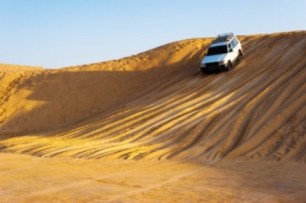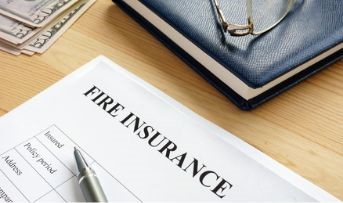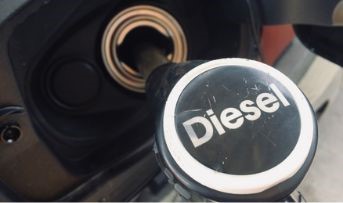General Insurance Blogs, Articles & Updates by - Magma Insurance
Have us call you
- RENEW YOUR POLICY
- BUY NEW POLICY

Find these exciting tips to get cheap domestic flight tickets for a budget-friendly trip
We usually hear that last-moment plans are the most exciting ones. But, they come with their challenges. Making these plans and executing them are two different things. Either you compromise on your destination or pay extra for airfare, hotel stay, etc.
We always end up figuring out ways in which we can reduce the overall expense during the course of our travel and finding cheap alternatives to the otherwise exorbitant pricing of the peak season chaos.
This article will discuss a few tips and tricks that you can use to book cheap tickets for your next vacation and spend those extra bucks on good food and shopping
1. Picking the right time:
This is the simplest way to save some money on flight tickets. Booking way ahead of your actual travelling date ensures that you get the cheapest option. A common trend is to book your tickets anywhere between fifty to sixty days before your trip.
The closer you are to the travelling dates, the higher are the prices. The fares are generally the highest during the last two weeks before the flight.
2. Be flexible with your timings:
Airlines generally tend to charge less for early morning or late-night flights. Although it can be a little uncomfortable, you can see a reduction of up to twenty per cent from the actual prices when you make a booking for the wee hours.
3. Clear your cookies:
Based on your internet search history, airfares increase if a particular commute route is repeated often. Clear all cookies from your browser. Another alternative is to use the incognito mode.
4. Opt for low budget airlines:
Low-cost airlines aim to attract more passengers by significantly reducing their fares. However, choosing a low-cost airline means you will need to compromise on other aspects such as legroom, food onboard, etc. But this is a foolproof way of finding cheap tickets even at the last moment.
5. Use multiple websites:
Surfing through various websites to figure out the lowest fare is another easy way of securing cheap tickets. Sometimes, websites fail to share all the flight options on a particular day. Hence, it is good to look through at least 3 to 4 websites to get the best prices and deals.
6. Use alternative routes:
Booking direct flights can be expensive but hopping flights can save thousands on the ticket. If you're flexible with your timings and routes, hopping flights are the best to offer you cheaper flight options.
7. Use debit and credit card offers:
Various special offers are always running on your cards throughout the year. You can get reduced fares and cashback by using these cards while purchasing your tickets. To look for offers associated with your card, you can directly go to the website or do a quick google search.
These are a few tricks that will help you find cheaper airline tickets. Remember that cheap tickets can also mean compromising on other aspects of your travel. There might be hidden costs, baggage restrictions, inconvenient departures, or a luggage mixup.
Before you set out on your trip, you must buy general insurance. This will act as a safety net if you face any issues during your trip. Buy general insurance online to avoid the last-minute chaos and get the financial protection and other benefits to make your trip more enjoyable!
Click HERE to buy general insurance online.
Disclaimer: The information provided above is for illustrative purposes only. To get more details, please refer to policy wordings and prospectus before purchasing a policy.

Five things to take care of before setting off on a desert safari
Do you plan your next holiday break enjoying the enthralling desert safari? If yes, then your vacation will inevitably be more remarkable than you could have imagined. Losing oneself in a unique sandy landscape is a captivating experience.
Though an ordinary day in desert safari is loaded with daring energy, there are numerous opportunities for a prosperous evening to add fascinating experiences to your vacation. However, it can also be annoying to overlook a few travel essentials.
Therefore, here are a few things to take care of before starting your desert safari journey.
1. Consume a modest diet:
We highly advise you to have a light meal at least an hour before you depart. Nothing too greasy or hot. A desert ride, particularly dune-bashing, may be rough, and you wouldn’t want to land up with stomach problems arising midway.
2. Get in the perfect state of mind:
Although a journey to the desert is often exciting and adrenaline-pumping, it may also be tricky at times. Make sure that you are both emotionally and physically fit for the event. Bring a positive attitude, a spirit of adventure, and maybe a little bit of determination, and you are good to go!
3. Do not carry extra clothing:
Bringing a lot of clothing on a desert safari may seem to be okay, but it is not. Your desert safari excursion includes a lot of walking and moving. Walking with too much or heavy luggage is intricate and can be tiring. So, it’s best to pack a few light clothes and a pair of easy-to-wear shoes.
4. Pack nothing unnecessary:
Many individuals carry unnecessary items with them that they will never use. Consequently, the additional weight and space make it difficult to enjoy the safari thoroughly. Just pack the things that can be useful during emergencies, like your medications, water bottles, etc. Stocking water bottles is essential while on a desert safari due to the excessive sweating that may make you dehydrated. Consume liquid intake at regular intervals and carry food packets to keep you energetic throughout the safari.
It would be better if you also kept bandages and aspirin in your hand luggage. Don’t forget sunscreen and other desert essentials like a hat, sunglasses, etc.
5. Consider your instructor’s suggestions:
You must never disregard the directions provided to you because there is nothing more important than your safety. Sand bashing can be dangerous if the golden rules of dunes are not followed. So, unless you are physically prepared to participate in it and other outdoor adventures, we recommend that you play it as cautiously as possible.
While you are entirely ready for your desert safari tour, spending time in the desert is not that simple but not too challenging either. With the proper guidelines and advice, you will be just fine to capture the best moments traversing through the desert and experiencing some sun, sand, and fun.
Desert safari is an enticing activity that everyone should take at least once in their lifetime. Research the best places to do it and put this on your bucket list. Similarly, do your research on insurance and get the best general insurance for yourself before leaving for the trip. General insurance can add a layer of safety to your travel plans and ensure compensation even if you face any damage or loss during your trip.
Click HERE to buy general insurance.
Disclaimer: The information provided above is for illustrative purposes only. To get more details, please refer to policy wordings and prospectus before purchasing a policy.

Fire insurance inclusions and types that you must know
Buying a high-value fixed asset like land or property is always expensive and risky, whether commercial or residential. Several external factors are outside the control of property owners, including fire, burglary, etc., which may result in extreme losses.
Purchasing insurance against such uncertainties is a prudent mechanism. It ensures that the amount of damages or loss is covered by the insurer, which is why buying fire insurance for any property you own is essential. Irrespective of whether you buy an insurance policy online or through an offline agent, you must be aware of what fire insurance covers, its inclusions, and various types to help you make the right choice.
Read on to learn all about fire insurance inclusions and types.
What is fire insurance?
Fire insurance is a contract that protects the insured against financial losses arising from damages or loss to his property or assets. Usually, it is purchased as a supplementary cover having several inclusions apart from just fires.
Essential features of fire insurance.
● It is purchased for one year
● It covers property, heavy machinery, stock of goods, furniture and fittings, etc
● The insurer can settle a claim on actual cash value or replacement cost basis
● It only covers direct loss to the insured property, making consequential loss claims non-admissible. However, add-on covers for the same are available at an additional cost
Inclusions of fire insurance.
As stated above, fire insurance covers unintentional risks beyond the scope of just fires. These include:
1. Fire:
The most apparent risk insured against is the fire itself. It has a broad range of inclusions and covers all fire-allied accidents, making the policy highly beneficial to business premises that regularly deal with fire.
2. Lightning:
Damages or losses caused by fire or lightning are within the scope of the policy. This may include cracks that run down the buildings or roof coverings, etc.
3. Explosion:
Blasts caused by high temperatures or high-pressure gases are included under the policy. However, read the fine print before you buy an insurance policy online. Many insurers make slight changes in their offerings and may not cover damages due to centrifugal force-based machines.
4. Aircraft damages:
Any fires caused due to an aircraft or an airborne device, including the dripping of explosive cargo, crashing, etc., are policy inclusions.
5. Violent activities:
These include a broad spectrum of terrorist activities, strikes, riots, or any public violence actions that may damage or set fire to the insured property.
6. Natural calamities:
Natural calamities are beyond the scope of the control of humans and include storms, typhoons, landslides, rockslides, floods, etc.
Types of policies.
The maximum claim amount that you can raise is based on the type of policy purchased.
1. Valued policy:
In this case, the contract states a pre-decided amount to be paid by the insurer in case of damage or destruction. This amount is non-alterable post-fire, and such a policy ensures high-value personal effects.
2. Specific policy:
This type of insurance is purchased where the insurer is liable to pay either the specified amount or the actual loss incurred, whichever is lower after a surveyor's inspection.
3. Average clause policy:
If the insured intentionally purchases a policy for a value lower than the actual property value, their claim is proportionately reduced to the extent of the loss incurred. This discourages the practice of underinsurance and minimises fraud.
4. Consequential loss policy:
This covers not just the direct loss but also the loss of profit due to a halt in operations due to damages or fire. However, the insured must pay an additional premium for such insurance.
5. Replacement policy:
The asset's market value is identified and then compensated for cost post depreciation. This ensures minimal losses for both- the insured and the insurer.
Considering the plethora of options available, you must read the inclusions, exclusions, and maximum permissible claims before you buy insurance policy online or offline to protect your assets from losses due to fire.
Click HERE to buy insurance policy online and protect your property from fire damages.
Disclaimer: The information provided above is for illustrative purposes only. To get more details, please refer to policy wordings and prospectus before purchasing a policy.

Do you own a diesel car? Here's how you can improve its mileage
Even though diesel engines produce more mileage, car owners are always looking to save more money by making their vehicles perform better. Most customers, including those who drive diesel-powered cars, are interested in learning how to get the best mileage from their diesel vehicles.
Here are some tips to get the most out of your diesel engines' fuel efficiency and cut operating costs.
Tips for increasing the fuel efficiency of car diesel engines:
The best place to start when trying to improve the fuel economy of your car's diesel engine is by examining your driving patterns or drivers' driving habits. Your fuel efficiency will increase if you train yourself to adopt good driving habits.
1. Eliminate idling:
Drivers should limit the time they spend stationary, especially when warming up their vehicle or stopping at a rest stop.
2. Utilise synthetic oil:
If you switch from standard oil to synthetic oil in a diesel engine, you can save up to 10% more fuel. Most of the time, using high-quality fluids will increase overall fuel efficiency.
3. Even as you accelerate:
To avoid excessive fuel burning, use smooth, continuous acceleration. Your diesel engine's fuel economy will improve with lower engine RPMs.
4. Take the cruise:
Use the cruise control instead of the gas pedal to keep your speed steady while driving on a flat road. You will consume less fuel overall if you use this strategy.
5. Scale back your highway speed:
According to studies, cars may travel at lower speeds without burning as much fuel. Given this, an 80 kmph speed limit for cars on the highway is typical. You will burn extra fuel and spend more money for every km per hour over 80 speed.
6. Look into your tyres:
Your fuel economy may also suffer if you have under or over-inflated tyres. Even though tyre condition should always be part of a pre-check, air pressure in tyres can change with temperature, going up in the heat and down in the cold. Try to maintain your car's pressure at the level advised by the car manufacturer.
7. Adjuvants for diesel engines:
It can be difficult to assess fuel additives impartially. Even though they promise that your intake valves, injectors, and carburettors will stay clean, the fuel savings may be so small that you won't even notice them. Most modern car engines don't require any additives, either. Before you spend your hard-earned money on engine additives, you should talk to licensed diesel mechanics and ask for their advice.
8. Air filters and intake devices:
A combustion engine's ability to operate effectively depends on air. If your engine doesn't get enough air, the engine will lose power. If you buy a better air intake product, you can stop this.
No matter what time of year, cold air intakes will increase diesel engines' long-term longevity and performance. Air filters also play a significant role in the air intake. Premium air filters may cost a little more, but they quickly pay for themselves by making your car use less gas.
9. Automobile monitoring:
We spent a lot of time discussing habits that can reduce fuel economy and how to change them to improve mileage. If you need a reliable piece of equipment to help you drive less aggressively, installing a monitor that shows your miles per gallon in real time can be a good choice. By keeping an eye on your most critical systems, you'll know immediately if you're idling too much or driving at an odd speed.
Speak to a qualified diesel technician if you need more advice about saving gas or installing aftermarket parts. Similarly, your car insurance will protect you from the financial obligations you might face if you hurt or accidentally damage your car or third-party vehicle. Car insurance online India improves the security coverage for your car and protects you against unforeseen events.
Click HERE to buy robust car insurance online India policy.
Disclaimer: The information provided above is for illustrative purposes only. To get more details, please refer to policy wordings and prospectus before purchasing a policy.

